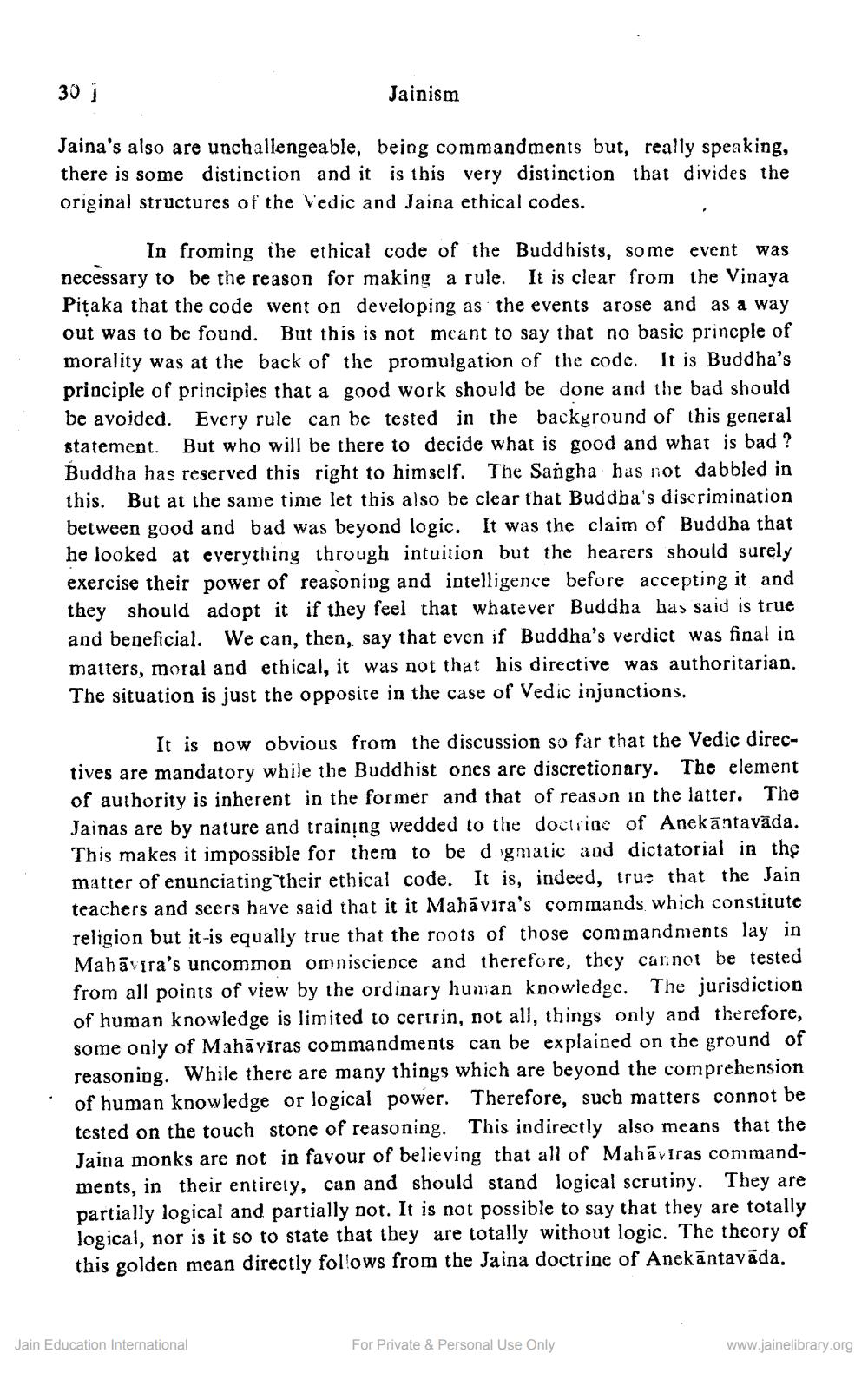________________
30 1
Jainism
Jaina's also are unchallengeable, being commandments but, really speaking, there is some distinction and it is this very distinction that divides the original structures of the Vedic and Jaina ethical codes.
In froming the ethical code of the Buddhists, some event was necessary to be the reason for making a rule. It is clear from the Vinaya Pitaka that the code went on developing as the events arose and as a way out was to be found. But this is not meant to say that no basic princple of morality was at the back of the promulgation of the code. It is Buddha's principle of principles that a good work should be done and the bad should be avoided. Every rule can be tested in the background of this general statement. But who will be there to decide what is good and what is bad ? Buddha has reserved this right to himself. The Sangha has not dabbled in this. But at the same time let this also be clear that Buddba's discrimination between good and bad was beyond logic. It was the claim of Buddha that he looked at everything through intuition but the hearers should surely exercise their power of reasoning and intelligence before accepting it and they should adopt it if they feel that whatever Buddha has said is true and beneficial. We can, then, say that even if Buddha's verdict was final in matters, moral and ethical, it was not that his directive was authoritarian. The situation is just the opposite in the case of Vedic injunctions.
It is now obvious from the discussion so far that the Vedic directives are mandatory while the Buddhist ones are discretionary. The element of authority is inherent in the former and that of reason in the latter. The Jainas are by nature and training wedded to the doctrine of Anekāntavāda. This makes it impossible for them to be digmatic and dictatorial in the matter of enunciating their ethical code. It is, indeed, true that the Jain teachers and seers have said that it it Mahāvira's commands which constitute religion but it is equally true that the roots of those commandments lay in Mahavira's uncommon omniscience and therefore, they carinot be tested from all points of view by the ordinary hunian knowledge. The jurisdiction of human knowledge is limited to certrin, not all, things only and therefore, some only of Mahā viras commandments can be explained on the ground of reasoning. While there are many things which are beyond the comprehension of human knowledge or logical power. Therefore, such matters connot be tested on the touch stone of reasoning. This indirectly also means that the Jaina monks are not in favour of believing that all of Mahaviras commandments, in their entirety, can and should stand logical scrutiny. They are partially logical and partially not. It is not possible to say that they are totally logical, nor is it so to state that they are totally without logic. The theory of this golden mean directly follows from the Jaina doctrine of Anekāntavāda.
Jain Education International
For Private & Personal Use Only
www.jainelibrary.org




